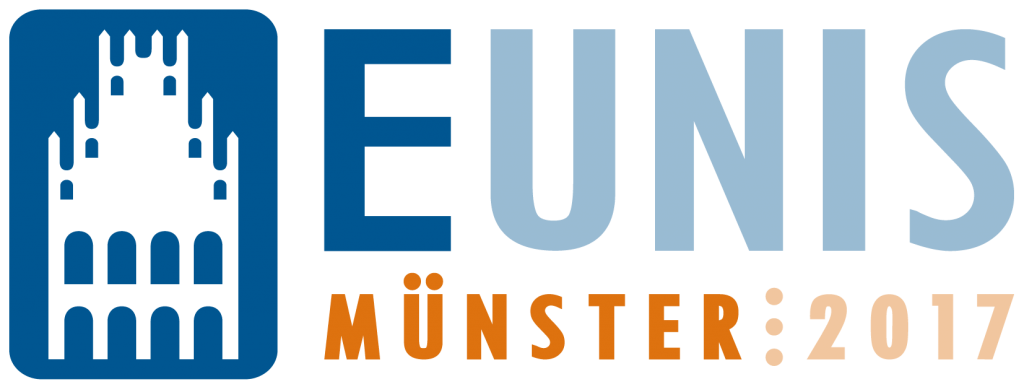Session Chair: C. Diaz
Supporting Student Mobility — Expected and Unexpected Results from the EMREX Field Trial
(Mats Lindstedt, Agnethe Lindstedt)
The EMREX network, co-funded by Erasmus+, addresses the EU 2020 target that 20% of higher education students should be mobile during their studies. EMREX focuses on the electronic exchange of student achievement records between higher education institutions. EMREX together with e.g. Erasmus Without Paper, FAIR, OLA, and other similar initiatives is part of a wider set of activities on student mobility by EU. Academic recognition in higher education is seen as a challenge in learner mobility and also as a potential area for the improvement of a more efficient education system in general. In 2016-2017 the EMREX project ran a Field Trial aiming at testing new ways to make the administration of student mobility easier between Finland, Norway, Sweden, Denmark and Italy. Over 100 students from 30+ HEIs in these countries have already logged into their student portals at their home universities and collected their study achievements electronically from the host universities, without the need to send paper copies. This session aims at presenting the findings from the EMREX Field Trial; what did the students think of EMREX, how can EMREX help the university administration, and what expected and unexpected results came out of the field trial? View Paper
EMREX and EWP Offering Complementary Digital Services in the Higher Education Area
(Janina Mincer-Daszkiewicz)
Nominated for Best Paper Award
EMREX (Field trial on the impact of enabling easy mobility on recognition of external studies) and EWP (Erasmus Without Paper) are two European projects funded by the Erasmus+ Programme, Key Action 3, running almost in parallel (2015-2017) and having some partners in common. EMREX is part of Prospective Initiatives — European Policy Experimentations, EWP part of Prospective Initiatives — Forward Looking Cooperation Projects. For those looking at them from the outside their goals seem to be similar — the electronic exchange of student data among higher education institutions (HEIs). Both projects are very active in the European Higher Education Area, offering the digitalization of services which are now handled on paper, searching for solutions to problems of data availability, data privacy, and secure data transfer, looking for new partners (also from outside Europe), and planning to apply for extension in the new Erasmus+ call (March 2017). If you are a higher education institution, interested in the digitalization of data exchange and the improvement of mobility processes, which of the two projects should you join? Is the effort involved doubled? Extending the IT services of your institution is a tempting but usually expensive decision to make. You should have good arguments to convince your superiors. Also, if you are to gain from digital data exchange, your partners in mobility should make the same decision. Should you join the pioneers or rather wait for the others to go first and eventually follow? Can you believe that the results of the projects will last longer than the end of 2017, at this moment the official end of Erasmus+ funding for both projects? Can you trust that what EMREX and EWP have to offer will make a real change in the digitalization of services in the higher education area in Europe and beyond? In this paper we ask some provocative questions and offer guidelines for higher education institutions who look for realistic answers. In particular, the paper contains the thorough comparison of the aims, approaches and challenges of both projects and concludes with some practical advice on their dissemination and sustainability. View Paper
Support Student Mobility with the European Student Card Project
(Frédérick Bigrat)
Nominated for Best Paper Award
In a Europe beset by crisis after crisis, youth mobility is more than ever proving a catalyst in bringing people together by fostering greater intercultural dialogue and an outward‐looking mentality. In order to tackle the obstacles to such mobility, the aim is to make better use of the opportunities provided by the Erasmus+ programme and to increase student mobility in the European Higher Education Area (EHEA). The European student card (ESC) is based on the recognition of the student identity and status regardless of institution, in accordance with each country’s specific procedures. ESC aims to promote cooperation between institutions and reciprocity of rights and services for students. Starting with the co‐operation between European student service organizations and in particular the Franco‐Italian dialogue (agreement signed in Rome in April 2013 between the Endisu Foundation and the Cnous, in presence of the President of the Italian Rectors Conference), the project ESC was structured by the signing in January 2016 of a “Memorandum of Understanding” between the student services organizations in Italy, France, Germany and Ireland and the implementation of technical working groups. In this context, the signing organizations are launching a technical platform for data and service sharing, which will launch initial experiments on the project in several territories: the Educatt network (Milan, Piacienza, Brescia And 40,000 students), ESU Padova (65,000 students), Royal Surgeon College in Dublin (3,500 students), Besançon (22,358 students), Strasbourg (55,500 students), and the cross‐border European campus Eucor (115,000 students). The 9 core partners (Cnous, Deutsches Studenwerk, Fondazione ENDISU, EDUCatt, ESU Padova, Studierendenwerk Karlsruhe, Crous Besançon, Strasbourg Crous, Confederation of student services in Ireland) committed to develop the European student card by supporting this project within the EU institutions within the framework of the Erasmus + program and by continuing to structure partnerships with (ECStA, Erasmus Without Paper, Erasmus Student Network) and with academic partners, with a view to its gradual extension to other institutions and countries. Currently 117 associated partners join the project. View Paper
